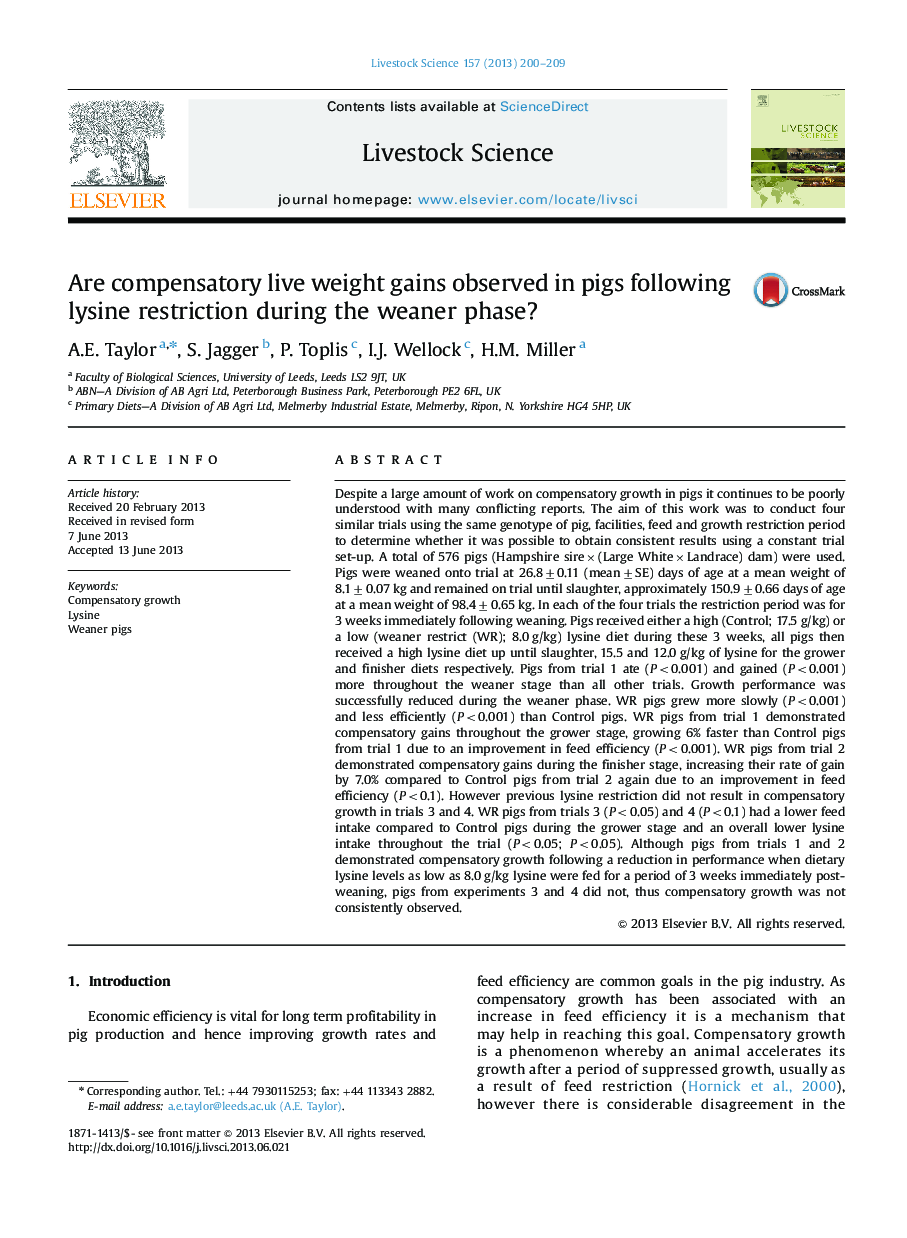| Article ID | Journal | Published Year | Pages | File Type |
|---|---|---|---|---|
| 5790363 | Livestock Science | 2013 | 10 Pages |
Abstract
Despite a large amount of work on compensatory growth in pigs it continues to be poorly understood with many conflicting reports. The aim of this work was to conduct four similar trials using the same genotype of pig, facilities, feed and growth restriction period to determine whether it was possible to obtain consistent results using a constant trial set-up. A total of 576 pigs (Hampshire sireÃ(Large WhiteÃLandrace) dam) were used. Pigs were weaned onto trial at 26.8±0.11 (mean±SE) days of age at a mean weight of 8.1±0.07 kg and remained on trial until slaughter, approximately 150.9±0.66 days of age at a mean weight of 98.4±0.65 kg. In each of the four trials the restriction period was for 3 weeks immediately following weaning. Pigs received either a high (Control; 17.5 g/kg) or a low (weaner restrict (WR); 8.0 g/kg) lysine diet during these 3 weeks, all pigs then received a high lysine diet up until slaughter, 15.5 and 12.0 g/kg of lysine for the grower and finisher diets respectively. Pigs from trial 1 ate (P<0.001) and gained (P<0.001) more throughout the weaner stage than all other trials. Growth performance was successfully reduced during the weaner phase. WR pigs grew more slowly (P<0.001) and less efficiently (P<0.001) than Control pigs. WR pigs from trial 1 demonstrated compensatory gains throughout the grower stage, growing 6% faster than Control pigs from trial 1 due to an improvement in feed efficiency (P<0.001). WR pigs from trial 2 demonstrated compensatory gains during the finisher stage, increasing their rate of gain by 7.0% compared to Control pigs from trial 2 again due to an improvement in feed efficiency (P<0.1). However previous lysine restriction did not result in compensatory growth in trials 3 and 4. WR pigs from trials 3 (P<0.05) and 4 (P<0.1) had a lower feed intake compared to Control pigs during the grower stage and an overall lower lysine intake throughout the trial (P<0.05; P<0.05). Although pigs from trials 1 and 2 demonstrated compensatory growth following a reduction in performance when dietary lysine levels as low as 8.0 g/kg lysine were fed for a period of 3 weeks immediately post-weaning, pigs from experiments 3 and 4 did not, thus compensatory growth was not consistently observed.
Keywords
Related Topics
Life Sciences
Agricultural and Biological Sciences
Animal Science and Zoology
Authors
A.E. Taylor, S. Jagger, P. Toplis, I.J. Wellock, H.M. Miller,
